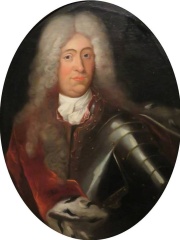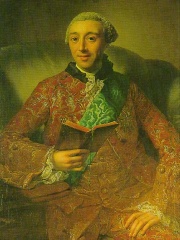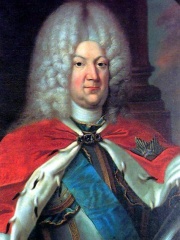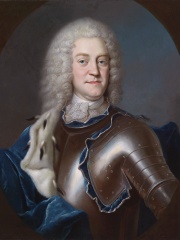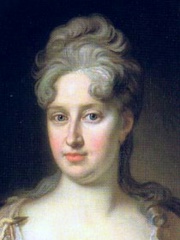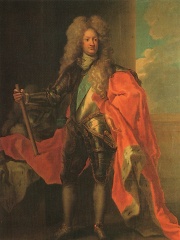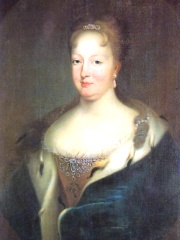 Grabow
Grabow
Grabow ranks 2,855th in number of biographies on Pantheon, behind Aubenas, Madurai, and Kostrzyn nad Odrą. The most famous people from Grabow are Adolphus Frederick II, Duke of Mecklenburg-Strelitz, Duke Louis of Mecklenburg-Schwerin, and Karl Leopold, Duke of Mecklenburg-Schwerin. The most famous people who died in Grabow are Christine Wilhelmine of Hesse-Homburg, and Frederick, Duke of Mecklenburg-Grabow. Grabow has been the birth place of many politicians, and noblemen and the death place of many noblemen. Grabow is located in Germany.
Grabow is a town in the Ludwigslust-Parchim district of Mecklenburg-Vorpommern, Germany. The town lies 7 kilometres (4.3 mi) southeast of Ludwigslust, the next city, and has the river Elde passing through its old town which is characterized by 16th century timber-framed architecture. Additionally, Grabow is a member and the seat of the Amt Grabow collective municipality as well as being a part of the Hamburg Metropolitan Region. Historically, Grabow was home to a royal residence where some monarchs of the Mecklenburg line were born. Read more on Wikipedia
People
Between 1658 and 1725, Grabow was the birth place of 6 globally memorable people, including Adolphus Frederick II, Duke of Mecklenburg-Strelitz, Duke Louis of Mecklenburg-Schwerin, and Karl Leopold, Duke of Mecklenburg-Schwerin. Additionaly, 2 globally memorable people have passed away in Grabow including Christine Wilhelmine of Hesse-Homburg, and Frederick, Duke of Mecklenburg-Grabow.
People Born in Grabow
Go to all RankingsAdolphus Frederick II, Duke of Mecklenburg-Strelitz
POLITICIAN
1658 - 1708
HPI: 66.76
Rank: 1
Duke Louis of Mecklenburg-Schwerin
NOBLEMAN
1725 - 1778
HPI: 64.67
Rank: 2
Karl Leopold, Duke of Mecklenburg-Schwerin
POLITICIAN
1678 - 1747
HPI: 63.12
Rank: 3
Christian Ludwig II, Duke of Mecklenburg-Schwerin
POLITICIAN
1683 - 1756
HPI: 63.05
Rank: 4
Sophia Louise of Mecklenburg-Schwerin
COMPANION
1685 - 1735
HPI: 61.68
Rank: 5
Frederick William, Duke of Mecklenburg-Schwerin
POLITICIAN
1675 - 1713
HPI: 59.40
Rank: 6
People Deceased in Grabow
Go to all RankingsChristine Wilhelmine of Hesse-Homburg
NOBLEMAN
1653 - 1722
HPI: 58.37
Rank: 1
Frederick, Duke of Mecklenburg-Grabow
NOBLEMAN
1638 - 1688
HPI: 57.74
Rank: 2
Occupations
Most individuals born in present day Grabow were politicians (4), noblemen (1), and companions (1), while most who died were noblemen (2).
Occupational Trends
Throughout history politicians have been the profession with the most memorable people born in present day Grabow, including Adolphus Frederick II, Duke of Mecklenburg-Strelitz, Karl Leopold, Duke of Mecklenburg-Schwerin, and Christian Ludwig II, Duke of Mecklenburg-Schwerin.
Places
Overlapping Lives
Below is a visual represetation of the lifespans of the top 1 globally memorable people born in Grabow since 1700.
